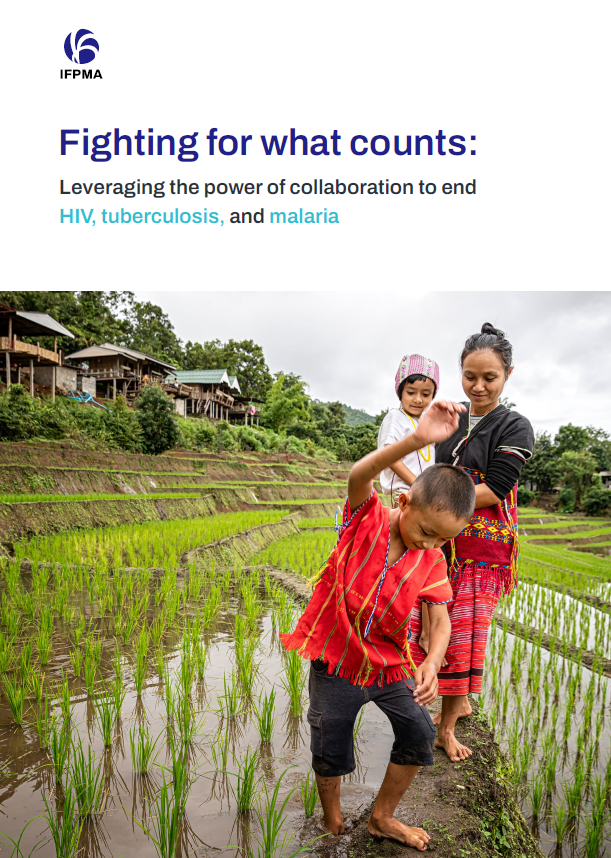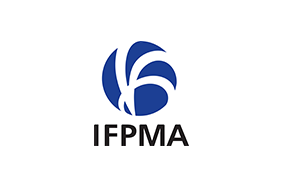R&D Based Biopharmaceutical Industry Statement in Support of the Seventh Global Fund Replenishment
Published 09-13-22
Submitted by International Federation of Pharmaceutical Manufacturers & Associations

September 13, 2022 /CSRwire/ - Ahead of the Global Fund Seventh Replenishment for 2024-2026, the innovative biopharmaceutical industry reaffirms its longstanding commitment to support the Global Fund mission to defeat HIV, TB, and malaria, and ensure a healthier, safer, more equitable future for all.
This replenishment seeks to mobilize US$18 billion to save 20 million lives. As part of this effort, the Global Fund is calling all actors – including multilateral and bilateral partners, governments, civil society, and the private sector – to join forces to get the world back on track toward ending HIV, TB, and malaria, build resilient and sustainable systems for health, and strengthen pandemic preparedness.
To mark this milestone, IFPMA, the innovative biopharmaceutical industry trade body, has compiled a report titled Fighting for what counts: Leveraging the power of collaboration to end HIV, tuberculosis, and malaria, which captures the industry’s diverse contribution to advancing progress in the fight against HIV, TB, and malaria. The report underscores the role of innovative partnerships for R&D, capacity building, public awareness, and community engagement to improve global health outcomes related to the three diseases while beating back the consequences triggered by COVID-19.
An exemplary model of public-private partnership, the Global Fund has been solidly supported by the industry since its creation 20 years ago. It commits to contribute to the Global Fund’s mission by:
- Leveraging its unique role and expertise for global health security by investing in R&D for disease-specific tools and interventions, including diagnostics, vaccines, and treatments, as well as prophylactics for HIV, TB, and malaria. This includes mRNA technology, long-acting formulas, as well as exploring drug resistance to existing products, which remains a challenge in the control and elimination of these three diseases.
- Fostering and accelerating innovation across the healthcare ecosystem to strive for better access to life-saving products for those who need them, whether through improved diagnostic and surveillance systems, integrated healthcare services, strengthened manufacturing capacity and supply chain resilience, or robust access and delivery infrastructure at the local level. The industry is also engaging through digital health solutions, awareness campaigns, and grassroots initiatives to ensure we achieve innovation in systems and processes and not just products.
- Collaborating to reinforce health systems and pandemic preparedness so that no future pandemic will disrupt shared goals to tackle HIV, TB, and malaria. The industry is committed to playing its part in reforming a global health architecture fit-for-purpose against emerging health threats, ensuring R&D, production, timely regulatory approval, and equitable distribution of necessary medicines.
Thomas Cueni, Director General of IFPMA, said: “From the introduction of novel classes of antiretroviral (ART) therapies to the development of new TB diagnostics, to the first-ever malaria vaccine launched in 2021, the biopharmaceutical industry has played a key role in advancing progress in the fight against HIV, TB, and malaria. Pharmaceutical companies continue to advance R&D and are now exploring how vaccine breakthroughs made during COVID-19, such as mRNA technology, could bring new hope for responding to disease. Likewise, progress in developing innovative diagnostic solutions that are easier to use and can test several diseases at the same time, as well as investment in testing networks, will bolster the fight against the HIV, TB, and malaria.”
“In recent months, global stakeholders have come together to reflect on the COVID-19 response – a key lesson learned being the power of innovation and partnership to drive life-saving solutions but also the need to reinforce health systems strengthening and ensure more equitable rollout. Without further delay, we should re-commit to the remarkable and proven vision of the Global Fund, combining human ingenuity, strategic investments, and cross-sectoral partnerships as the recipe to achieve progress toward our goals to eliminate and control three of the deadliest diseases in the world – HIV, TB, and malaria.”
To learn more about industry’s collaborations to end HIV, TB, and malaria:
IFPMA’s report titled Fighting for what counts: Leveraging the power of collaboration to end HIV, tuberculosis, and malaria captures industry’s diverse contribution in advancing progress in the fights against HIV, TB, and malaria.The myriad of ongoing initiatives across the industry illustrate that biopharmaceutical companies are not only focusing on the development of innovative medicines and vaccines, but also on the strengthening of health systems, services, and workforce that are needed to deliver those products. The report underscores the role of innovative partnerships for R&D, capacity building, public awareness, and community engagement to improve global health outcomes related to the three diseases while beating back the consequences triggered by COVID-19. Access the full report here. The full breadth of the innovative biopharmaceutical industry’s collaborations can be explored on Global Health Progress.

International Federation of Pharmaceutical Manufacturers & Associations
International Federation of Pharmaceutical Manufacturers & Associations
The International Federation of Pharmaceutical Manufacturers & Associations (IFPMA) represents research-based pharmaceutical companies and associations across the globe. Based in Geneva, IFPMA has official relations with the United Nations and contributes industry expertise to help the global health community find solutions that improve global health.
Research-based pharmaceutical companies make a unique contribution to global health as innovators of life-saving and life-changing medicines and vaccines, which improved millions of lives around the world. Both IFPMA and its companies are involved in hundreds of partnerships, including the Access Accelerated initiative, a partnership of over 20 biopharmaceutical companies developing innovative and sustainable solutions to improve access to non-communicable disease (NCDs) treatment and care in low- and middle income countries. Access Accelerated also partners with the World Bank and the Union of International Cancer Control to help address the full spectrum of access barriers to NCD medicines. These partnerships involve the discovery of treatments that threaten health security or unduly put a burden on low-income countries, as well as support Universal Health Coverage (UHC) by expanding access to medicines and vaccines and strengthening health systems and in doing so, contribute to the Sustainable Development Goals (SDG 3 and SDG 17).
IFPMA hosts the Secretariat of the AMR Industry Alliance, a coalition of over 100 biotechnology, diagnostic, generics and research-based biopharmaceutical companies and trade associations that was formed to drive and measure industry progress to curb antimicrobial resistance. IFPMA also played a key role in establishing the AMR Action Fund, a ground-breaking initiative involving over 20 biopharmaceutical companies, that aims to bring 2-4 new antibiotics to patients by 2030.
Other initiatives supported by IFPMA include: The African Global Health Leaders Fellowship, the Africa Young Innovators for Health Award, and Fight the Fakes.
More from International Federation of Pharmaceutical Manufacturers & Associations

